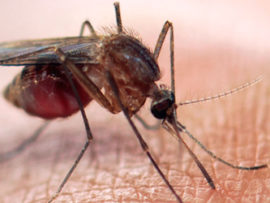Rose Pharmacy is pleased to announce A New Experience in Health, Beauty, Well-being at Rose Pharmacy Nicris Capitol Square Cebu branch located at NIC 1 Bldg, Capitol Square, Escario Cebu City.
What is Zika Virus
Zika virus disease (Zika) is a disease caused by Zika virus that is spread to people primarily through the bite of an infected Aedes species mosquito. The most common symptoms of Zika are fever, rash, joint pain, and conjunctivitis (red eyes). The illness is usually mild with symptoms lasting for several days to a week after being bitten by an infected mosquito. People usually don’t get sick enough to go to the hospital, and they very rarely die of Zika. For this reason, many people might not realize they have been infected. Once a person has been infected, he or she is likely to be protected from future infections.
How to avoid Zika Virus
The Department of Health (DOH) addresses the public to remember and use ‘4S’ against Zika virus and other mosquito-borne diseases. The 4S means Search & destroy mosquito breeding places, use Self-protection measures, Seek early consultation for fever lasting more than 2 days, and Say yes to fogging when there is an impending outbreak.
“The first step to prevent mosquito-borne diseases is within our homes. We should not only remember the information being delivered by DOH to the communities. Instead, let us make it a practice and instill cleanliness in our surroundings. It is not only your family that will benefit from this habit, but the entire community as well.” Health Secretary Janette P. Loreto-Garin said.
This January, there were reports from different countries regarding a disease caused by Zika virus. Zika virus causes a influenza-like disease with concurrent conjunctivitis. Some cases are asymptomatic (does not manifest any symptoms) and it can be acquired when bitten by an infected Aedes aegypti mosquito – the same type of mosquito that spreads dengue, Chikungunya, and yellow fever. Symptoms of Zika virus infection usually begin 3-7 days after being bitten by an infected mosquito. Common symptoms include fever, rash, joint pain, and conjunctivitis. Other symptoms are muscle pain, headache, and vomiting. The illness is usually mild with symptoms lasting for 2-7 days. Hence, it is very important to clean the surroundings in order to prevent the breeding of Aedes aegypti mosquitoes that serve as the vector of the said virus.
Health authorities are currently investigating a potential link between Zika virus in pregnant women and microcephaly (a rare condition where a baby has an abnormally small head). Until concrete evidences are verified, women who are pregnant or planning to become pregnant should take extra care to protect themselves from mosquito bites. DOH advises that pregnant women who are experiencing symptoms of Zika virus disease should seek early consultation.
Currently, there is no available vaccine to prevent Zika virus, and there is no available medicine to treat the infection. However, the symptoms of Zika virus disease can be treated with common pain and fever medicines, rest, and plenty of water. If symptoms continue to occur after 2 days, consultation in the nearest health facility to seek medical advice is recommended.
In the Philippines, a documented case of Zika virus infection was traced in Cebu City in 2012. A 15 year old boy was reported with symptoms of fever, headache, conjunctivitis, sore throat, muscle pain, abdominal pain, loss of appetite, nausea and vomiting. The said patient recovered fully after 3 weeks of continuous bed rest and medication. After yielding negative from tests on dengue and Chikungunya, the patient’s serum was tested positive for Zika Virus.
The World Health Organization (WHO) still does not recommend the imposition of any travel, trade, or screening restrictions related to Zika virus disease. However, it is advised that travelers going to and coming from countries with known Zika virus cases maintain a high level of vigilance and self-care.
“Let’s go back to basics; we always say that prevention is better than cure. Prevention should start from our home. Make 4S a regular habit and participate in cleaning activities initiated in our community. Kalinisan at kalusugan. Makiisa sa kalinisan ng ating komunidad, ang kalusugan ay responisibilad ng bawat isa.” Garin concluded.
Source: Department of Health Philippines
Health advisory on heat stroke
When undergoing a heat stroke, the body overheats and can’t cool down by sweating because of dehydration. The risk of getting a heat stroke increases during hot and humid weather, especially if you are engaged in physical activity, are dehydrated, or have been directly exposed to the sun for too long.
Watch out for the following signs of heat exhaustion: intense thirst, dehydration, weakness or discomfort, dizziness or fainting, anxiety, and headaches.
You are suffering from a heat stroke if your core body temperature is 40°C or more; your skin is hot and dry; your heartbeat is rapid; or if you are suffering from convulsions, deliriums, and loss of consciousness, or even a coma.
To prevent a heat stroke limit the amount of time you spend outdoors, drink plenty of water; avoid tea, coffee, soda, and alcohol; wear a wide-brimmed hat and long-sleeved clothing outdoors; and schedule strenuous activities for the beginning or end of the day when it’s cooler.
To assist persons suffering from a heat stroke, move them to a shady spot or indoors and have them lie down with the legs elevated. If still conscious, have them sip cool water. Remove clothing, apply cool water to the skin and fan them. Apply ice packs to the armpits, wrists, ankles, and groin. Bring them to a hospital as soon as possible.
Source: Department of Health Philippines
Who says you have to succumb to the flu every season?
Your immunity may have taken a beating from stress and overwork, and this will make you more susceptible to coming down with the flu. To boost your immunity, increase your dose of ascorbic acid (vitamin C) to 2,000mg three times a day. If you feel you need it beyond five days, reduce the dose to 1,000mg three times a day.
It is advisable to adopt a diet of fruits and vegetables and supplement it with vitamins. Vitamin C is a water-soluble vitamin. This means that your body will expel what it does not absorb or need either through urination or sweating without storing any excess.
You can also ask our Rose Pharmacy pharmacists about slow-release or time-released vitamin C tablets. These tablets provide your body with vitamin C slowly, allowing you to fully maximise your vitamin C intake.
Apart from vitamin C, you can reduce your risk of getting the flu by adopting these prevention strategies:
- Keep a strict distance from those who are sick, especially children
- Build your immune system with lots of fresh fruit and vegetables
- Get regular exercise, ideally in fresh air
- Get at least eight hours of sleep each day
- Don’t get into the habit of touching your nose, eyes, and mouth as this is the best way to transfer germs
- Wash your hands frequently with plenty of soap and water
- Teach everyone in your house to cover their mouths when they cough or sneeze. To avoid airborne droplets from others, cover your nose and mouth, with your sleeve or a handkerchief when they cough or sneeze
- Consult our Guardian pharmacists about the efficacy of flu vaccines






